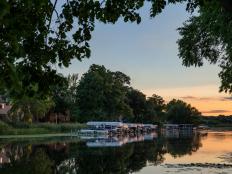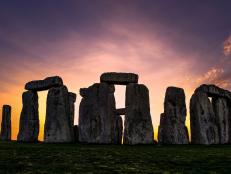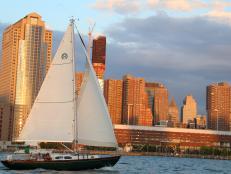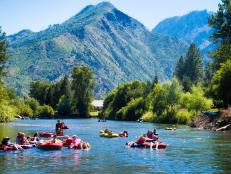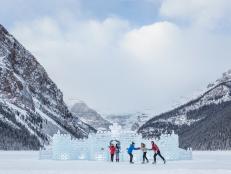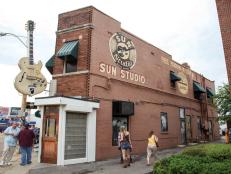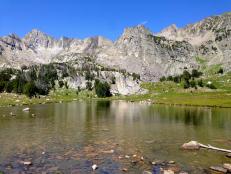Get On Track With Rails To Trails
Many railroads have fallen into disuse. But some of their old rail beds have been remade into pathways that are great for walking, biking and rollerblading. Many of these popular rails-to-trails are situated in the heart of the city and are wonderful places for urban adventurers to get back to nature.
Tip: TrailLink.com is a great source for information. Many states also have their own trail sites.
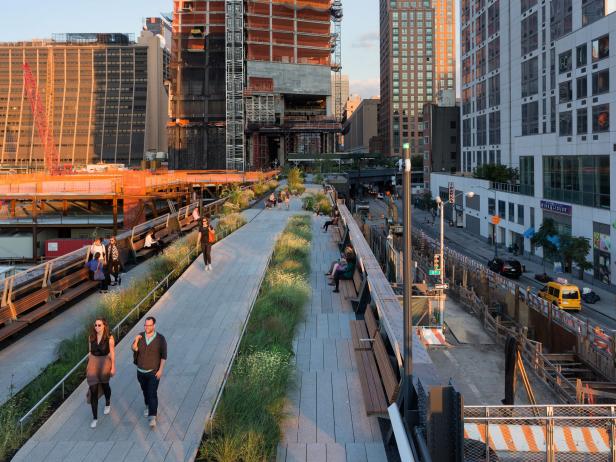
Iwan Baan; 2014
The High Line, New York
Starting in the 1980s, interstate trucking put an end to the trains that once ran through an important industrial district in Manhattan. But a group called “Friends of the High Line” organized to save the rails from demolition, and now the area is a public park that rises above the streets on Manhattan’s West Side. On a hot day, stop to splash your feet in the water feature at the Diller-von Furstenberg Sundeck, or head to 10th Avenue Square and Overlook for views of the Hudson River and the Statue of Liberty.
Atlanta BeltLine, Georgia
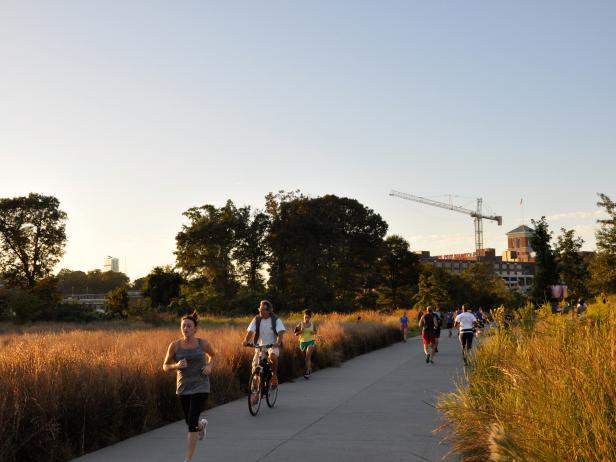
Rama Roy
Atlanta’s Beltline is one of the biggest urban redevelopment projects in the U.S., made up of parks, public transportation and multi-use trails. This 22-mile line circles downtown Atlanta and will eventually connect some 45 neighborhoods. Don’t miss the annual Atlanta BeltLine races, or Art on the Atlanta BeltLine, a temporary exhibition with music, visual art and performances. The yearly fall Lantern Parade, hosted by the Krewe of the Grateful Gluttons, is a huge draw, featuring colorful, glowing lanterns and live music. You’ll also find the Silver Comet Trail in Georgia. This concrete trail follows the old Seaboard Air Line for about 61.5 miles. If you go as far as the Georgia-Alabama line, you can continue on Alabama’s Chief Ladiga Trail.
Capital Crescent Trail, Washington, D.C.
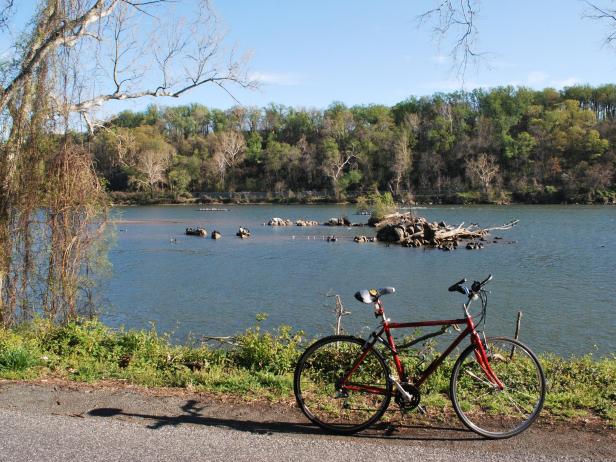
The Coalition for the Capital Crescent Trail
Like many trails, the Capital Crescent, which runs for eleven miles from Georgetown, D.C. to Silver Spring, Maryland, is open to joggers, rollerbladers, runners, walkers and bikers. Once used by the B&O Railroad, the rail bed is a combination of hard surface and packed, crushed stone, so some bikes may have trouble in spots. Highlights include parks and wooded areas, four historic bridges, two historic tunnels, and great views of the Potomac River.
Great Allegheny Passage, Maryland and Pennsylvania
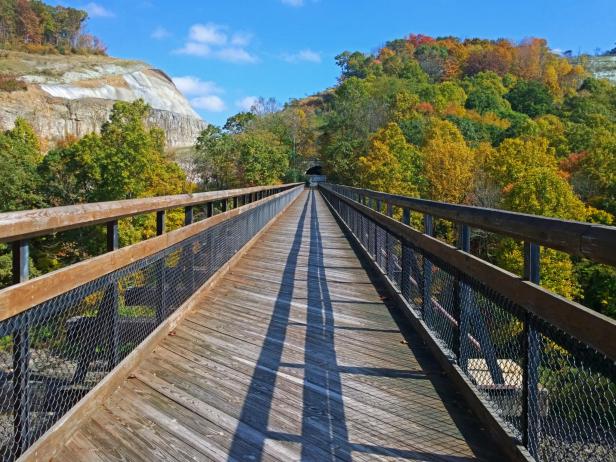
Blase Ur/Rails To Trails Conservancy
Starting in the 1880s, this rail line moved coal and coke to the Pittsburgh steel mills. A century later, freight traffic dried up, and now the Great Allegheny Passage connects McKeesport, Pennsylvania (south of Pittsburgh) to Cumberland, Maryland. At 150 miles, it's the longest rail-to-trail east of the Mississippi River. Look for signage and industrial artifacts on the portion that overlaps with the Three Rivers Heritage Trail. If you’re into whitewater rafting, continue to the Youghiogheny River and the town of Ohiopyle. There’s stunning scenery to enjoy as you cross the Eastern Continental Divide.
Tweetsie Trail, Tennessee
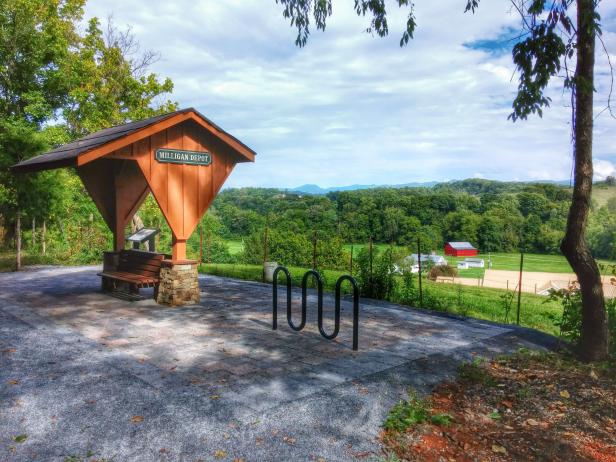
TrailLink.com
What’s not to love about a trail named for the sound of a locomotive whistle? The Tweetsie, a relatively flat route with a crushed stone surface, runs between Johnson City and Elizabethton, Tennessee. It takes walkers, hikers, bikers and others through Sycamore Shoals State Park, over seven bridges, and past lots of beautiful, natural scenery before terminating near the Betsytowne Shopping Center. Make time to take in the views from one of the many benches along the trail.
Katy Trail, Missouri
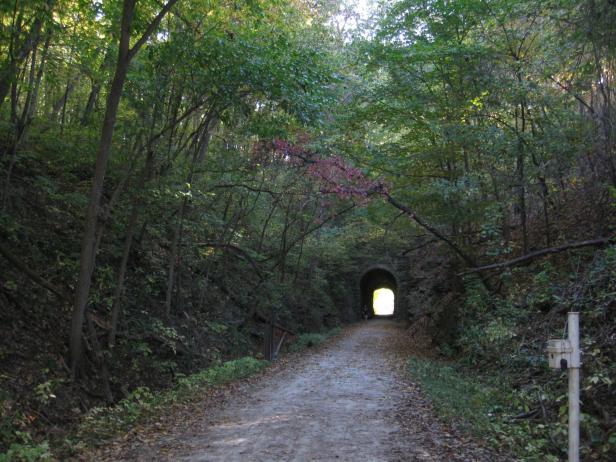
TrailLink.com
Missouri’s Katy Trail State Park welcomes riders on horses in its western section, from the state fairgrounds in Sedalia to Calhoun. The rest of this 238-mile trail—one of the longest rails-to-trails in the country—is open to cyclists and walkers. Surfaced with crushed limestone trail, it's only open during daylight hours. It's listed in the Rail-Trail Hall of Fame, and it's part of the Lewis and Clark National Historic Trail, as well as an American Discovery Trail and Millennium Legacy Trail. Parts of the trail follow the Missouri River, so watch for birds and waterfowl. A couple of notes: bring plenty of water, since it’s not available at every trailhead, and if you're going one-way or point-to-point, book a seat on one of the popular shuttles well in advance.
George S. Mickelson Trail, South Dakota
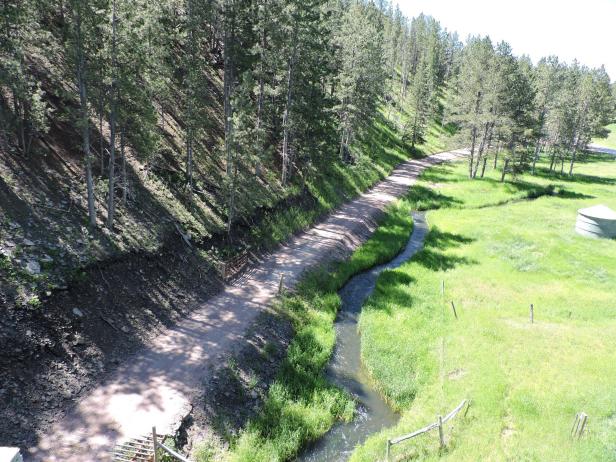
Kerry Liston/TrailLink.com
This 109-mile trail, named for a late South Dakota governor, goes through national forestland and some private lands as it winds through the Black Hills. There are steep drop-offs in some areas, while in others, the trail hugs the mountainsides, making it a challenge for cyclists. Head toward Hill City to see the Crazy Horse Monument; work began on the giant stone face in 1948 and still isn’t finished. Visit Mount Rushmore, near Keystone, at night to see the carving illuminated. This trail is rich with in gold rush, railroad and western history.
Longleaf Trace, Mississippi
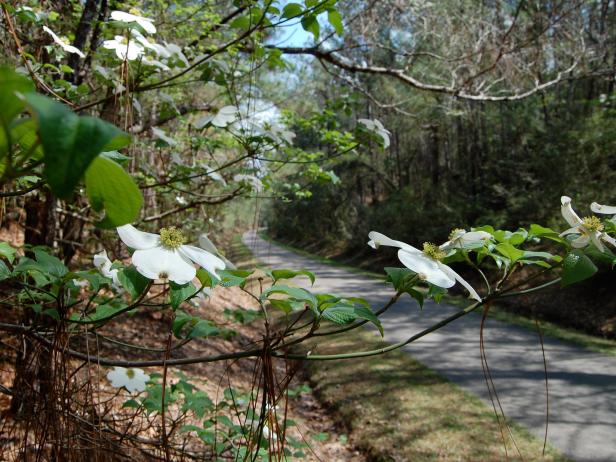
Jake Lynch/Rails to Trails Conservancy
This National Recreation Trail connects the University of Southern Mississippi, in Hattiesburg, to the town of Prentiss, taking users along the old Mississippi Central Railroad line. The 41-mile route is topped with asphalt, so it's smooth and easy to navigate for bikers, walkers, in-line skaters, horseback riders, and wheelchair users. The Longleaf goes through the heart of the state’s Pine Belt, so you'll see oaks, magnolias and dogwood trees; and in the spring, flowers like fragrant honeysuckles and flowering wisteria. If you have time, visit Hattiesburg’s historic depot, the African-American Military History Museum and the Freedom Summer Trail.

